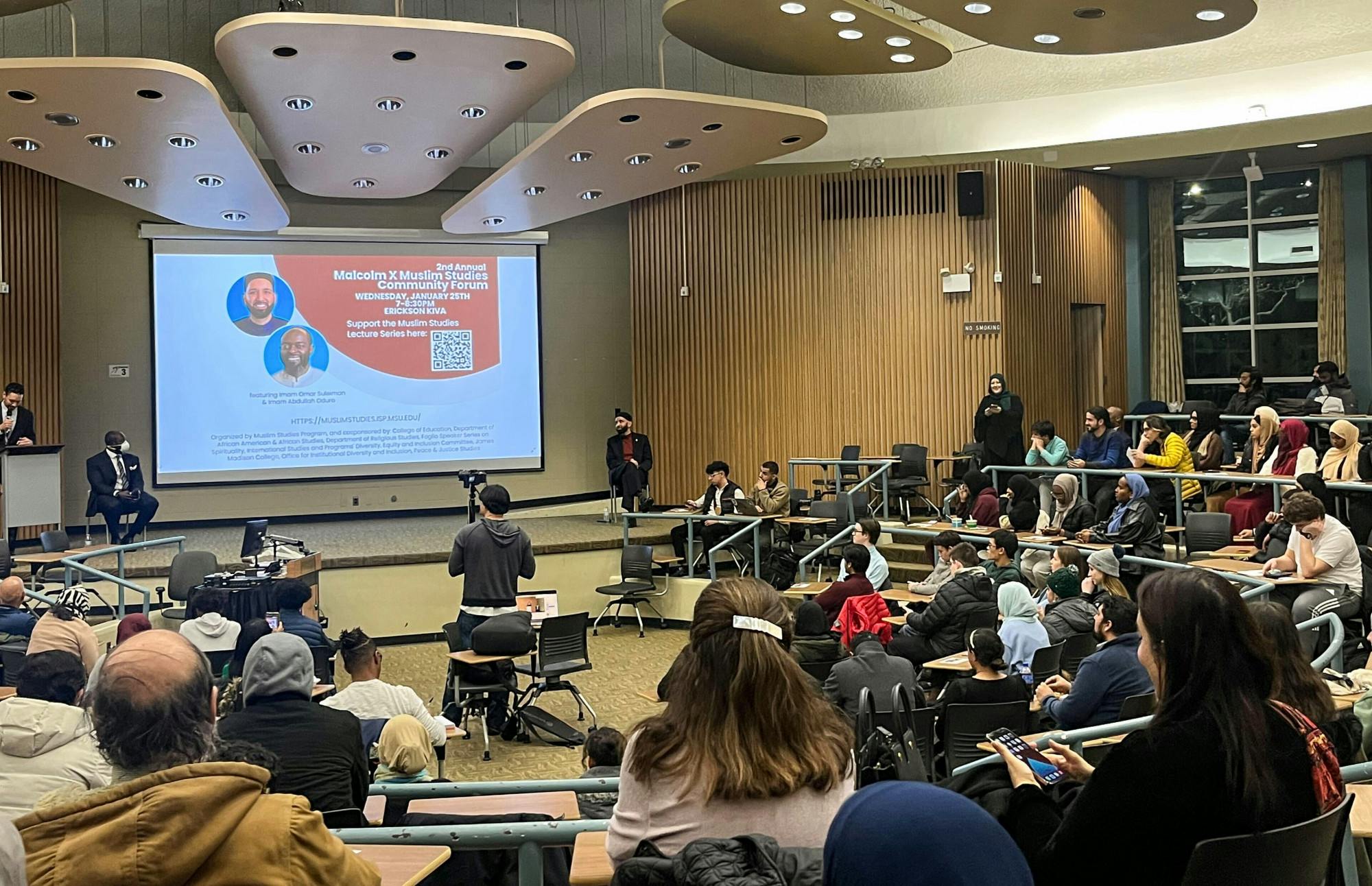The Muslim Studies Program hosted a community Malcolm X forum on Thursday, featuring speeches surrounding Malcolm X's legacy given by prominent Muslim scholars Omar Suleiman and Abdullah Oduro.
The forum took place at Erickson Kiva, the same location where Malcolm X gave his “The Race Problem in America” speech 60 years ago on Jan. 23rd, 1963.
Professor Mohammad Khalil of the Muslim Studies program said the two speakers at the event are prominent Muslim activists who have been influenced themselves by the teachings of Malcolm X.
The main focus of Oduro’s speech centered around the sincerity of Malcolm X.
“Religion is sincerity, and Malcolm was burdened by his sincerity," Oduro said. "You will find in the life of this man that he never takes the easy way out. He always chooses not the more difficult course, but the one that he finds his heart to be in greater harmony with. This shapes Malcolm's personal life, it shapes his politics, it shapes his religious pursuits, it shapes his alliances, it shapes every single sphere of his life.”
Oduro says that it was this sincerity throughout Malcolm X’s life that translated his speeches to the world.
“Many of the things that Malcolm said were self-evident, especially to Black people in America that lived the nightmare that he was speaking about,” Oduro said. “But it was the sincerity of Malcolm to that truth, his commitment and his willingness to face the consequences of that commitment.”
Oduro’s speech also focused on Malcolm X’s journey. He said struggle served as a part of the evolution of Malcolm X.
Suleiman said that Malcolm X’s journey was predestined, and that the audience should use his story to take an introspective look into their lives and the lives of those around them.
“(His evolution) was predestined. If we stop right now and look at our lives, every individual that we look at, and we see their history and their life story, it's so profound," Suleiman said. "We have to stop and look at, 'How does that affect me? Where am I in this situation?' In this scene in his life, the solitary confinement was physical for him, ... but it can be metaphorical for us."
Professor Kahlil said he hopes that the audience gained a better understanding of who Malcolm X was and the impact that he has had on people after the forum.
"I think, all too often people have a one dimensional view of Malcolm X," Khalil said. "And I wanted folks to see that he was actually a very sophisticated individual, and he influenced people in a lot of different ways.”







